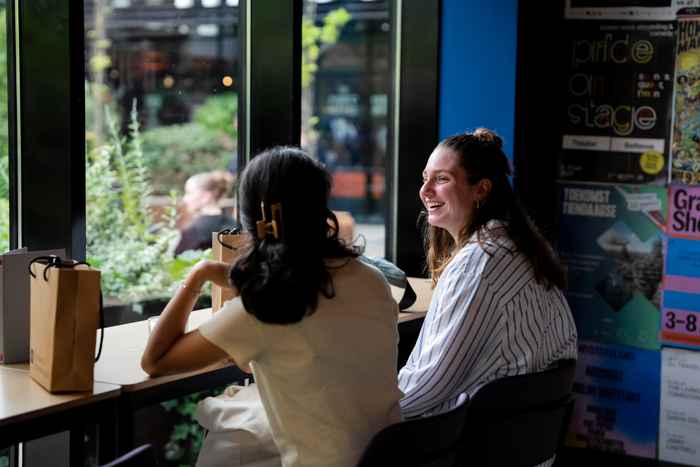The Psychedelic Universe: Global Perspectives on Higher Consciousness
This course provides an in-depth exploration of psychedelic consciousness across space, time, and culture. We analyze the imbrication of psychedelic drugs and human culture, from the mystery cults of the ancient world and indigenous societies to postwar hippie culture, ayahuasca tourism, and today’s “Psychedelic Renaissance.” Special attention is placed on the deep historical interconnections between psychedelics, culture, and religion. This two week programme offers learners a comprehensive examination of psychedelics.



-
Programme at a glance
Mode of instruction: On-campus (2 weeks) Academic dates: Sunday 15 June - Friday 27 June 2025 Housing dates: Friday 13 June - Monday 30 June 2025 Academic Fee: Student Fee:
€1500. Read more about what's included in the fees.
Professional fee:
€2000. Read more about what's included in the fees.
Housing fees: €750 for a private room with shared facilities. Housing is optional. Read more about university-organised accomodation.
Credits: 4 European Credits. Read more about credits and credit transfer. Early admission deadline: Saturday 1 February 2025 Final admission deadline: 1 May 2025 Who is this programme for? Level: Advanced Bachelor and Master's students. Professionals working as clinicians, therapists and mental health workers, policy makers, educators and psychedelic guides. PhD students and Post-docs with sufficient backgrounds
Background: Applicants with a strong academic background and a desire to deepen their understanding of how psychedelics have shaped human history.
-
Programme description
Today’s 'Psychedelic Renaissance' is haunted by the spectre of religion. On the research front, clinicians, psychiatrists, and neuroscientists are now staking claims within territories previously reserved for religious experts or anthropologists, like the origins of otherworldly visions or the nature of “mystical” experience. Yet, the emerging field of psychedelic science has neglected the deep historical interconnections between psychedelics, culture, and religion across time and space, from pre-history to the present day.
Students who complete this course will gain a solid understanding of (1) the historical contexts which have shaped the current wave of psychedelic research in the medical and scientific community; (2) the anthropological, sociological, and historical study of psychedelic spiritualities; (3) the diverse ritual contexts and expectations for psychedelic experiences across time, space, and an array of global traditions; (4) the political, cultural, and ethical issues embedded within the shifting narratives of the “Psychedelic Renaissance.”
Please note that as this is an intensive course, all participants are expected to attend each session. Lunches are provided for participants on class days.
-
Academic Directors
Dr. J. Christian Greer is a scholar of Religious Studies with a special focus on psychedelic culture. He holds a MDiv from Harvard Divinity School, as well as a MA and PhD (cum laude) in Western Esotericism from the University of Amsterdam. While a postdoctoral researcher at Harvard Divinity School, he led a series of research seminars on global psychedelic spirituality, which culminated in the creation of the Harvard Psychedelic Walking Tour, a free audio guide detailing how the Harvard community has shaped the modern history of psychedelic culture. He has published numerous articles on various psychedelic subcultures, and his latest book, Kumano Kodo: Pilgrimage to Powerspots (co-authored with Dr. Michelle Oing) analyzes the pilgrimage folklore associated with the rainforests of Japan's Kii Peninsula. His forthcoming book, Angelheaded Hipsters: Psychedelic Militancy in Nineteen Eighties North America (Oxford University Press), explores the expansion of psychedelic culture within fanzine networks in the late Cold War era. After holding teaching and research positions at Harvard University and Yale University, he is now a lecturer at Stanford University.
Paul Gillis-Smith - Program Lead, Psychedelics and Spirituality, Transcendence and Transformation Initiative
Center for the Study of World Religions, Harvard Divinity School
Latest publication: Psychedelic Intersections: 2024 Conference Anthology
-
Explore our community
To get a preview of some of the topics covered and get to know the academic directors, listen to Episode 10: Visions of the Occult, of Mokum Podcast. Marco and Christian talk about not only the winter programme, but the study of esotericism broadly, and its importance for understanding the world today.
Want to get to know more about studying in Amsterdam? Follow us on social media and join our summer community. Get a feel for our summer school vibe and our academic and social community, and learn about studying with us through the eyes of past summer school students.
- Mode
- Short-term
- Credits
- 4 ECTS, 2 weeks
- Language of instruction
- English
- Starts in
- June